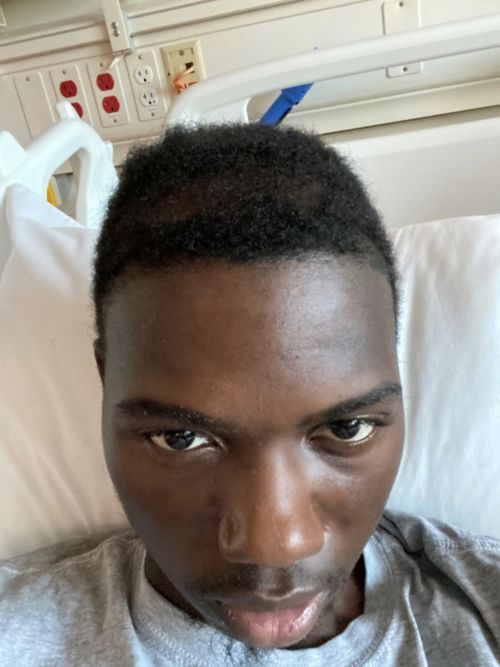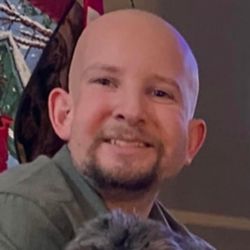Aplastic Anemia Can’t Keep Jolly Down
Jaquize “Jolly” Green knelt on the sidelines under the hot Arkansas sun. He knew he couldn’t keep going.
The teen was at football camp, the summer before he began 10th grade. Green felt drained.
“Tackling was getting harder and harder,” he says. “After I hit somebody, I got up really slow. I knew something was wrong.”
Green finished the camp but knew he needed to see a doctor. He could feel that he was tired from more than just the summer heat. After visits to 2 hospitals, doctors referred him to St. Jude Children’s Research Hospital.

Jolly had a stem cell transplant to treat his aplastic anemia.
Stem cell transplant for aplastic anemia
The cause of his problems was a disease called severe aplastic anemia. In severe aplastic anemia, the body does not make enough new blood cells. That is because the bone marrow does not work the way it should. Bone marrow is the soft, spongy tissue in the center of many bones. It makes blood stem cells, which produce new blood cells. The lack of blood cells explained why Green was so tired and weak.
At St. Jude, doctors first tried medicines to keep his immune system from attacking his blood stem cells. But that approach did not work the way they had hoped.
So, Green had a stem cell (bone marrow) transplant in 2022. A transplant puts new stem cells from a donor into the body so they can make healthy blood cells. The transplant successfully treated Green’s disease.
Change of direction
Because of his treatment, the athlete had to stop playing football and competing on his school’s track team.
“Everything kind of got taken away from me,” Green says. “I was mad.”
But life went on. He graduated from high school. In fact, he was one of the first graduates of a new program at his school where students earned their commercial driver’s license while in high school. This accomplishment opens the doors to careers such as truck driving.
Resilience despite challenges
People who know Green talk about his strength amid setbacks.
“The word that comes to mind when I think of Jolly and his family is resilience,” says Amanda Pullen, Green’s social worker at St. Jude.
“He was diagnosed with a life-threatening illness when he was just 16,” Pullen says. “He and his family have maintained such positivity. It doesn’t mean they don’t have negative thoughts now and then. But they have made life work and gotten through tough times.”

Fishing and being outside give Jolly a sense of peace.
Faith, fishing, and an active lifestyle
Green says putting God first is the most important thing he has done to deal with the changes in his life.
And he goes fishing. Whether it is at a nearby pond, river, or lake, he is outdoors hoping to catch a buffalo fish or some catfish, bream, or crappie.
“I find peace of mind being next to nature,” Green says. “It’s cool to fish by yourself or with other people.”
Sometimes it is good to talk with someone about what is going on in your life. You can talk to a member of your care team or maybe a family member or friend.
“It feels good to get things off your chest,” Green says.
Staying active is also important. Find something you love to do and keep at it, Green says.
“Wake up every day and don’t let anything stop you,” he says. “Play music if you like music. Try to stay positive – no negativity. I take each day slow. I keep my head up and look forward.”





